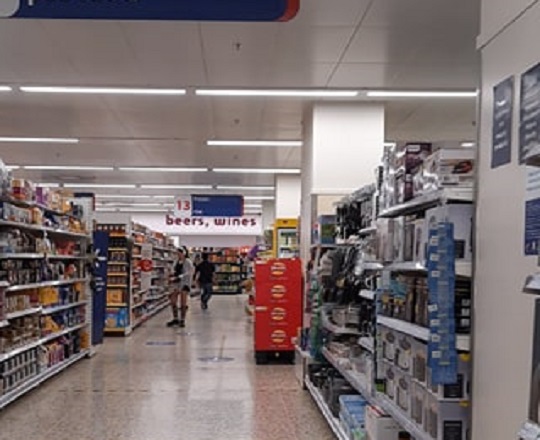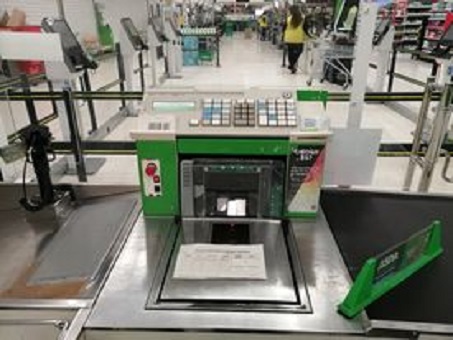Coronavirus: Views from behind the till

Supermarket workers are under great strain at the moment.
Panic buying has increased the workload of workers struggling to keep shelves filled. Staff are now starting to go into isolation, increasing the pressures further on those who are still working.
We have been told that most customers understand that staff are working under pressure and accept delays at check outs with good grace and see colleagues trying to replenish stock that often is leaving the shelves as fast as they can be filled.
But a few have been rude and abusive to staff.
At checkouts, and especially self checkouts, the pressure increased during the second week of March when the focus of panic buying shifted to paracetamol. Rumours had spread that ibuprofen is harmful to people infected with Covin19, and that paracetamol should be taken instead fuelled, it would seem, on social media.
The law restricts customers to two packs of painkillers per adult customer. Many customers were trying to buy more and taking their frustrations out on staff who refused to allow them to buy more than that. We have been told of cases of customers who, having been refused, have sent sons and daughters to self checkouts to buy more. With paracetamol being age restricted, staff were refusing sales when acceptable proof of age was not produced, causing further irritation to customers.
One worker in Nottingham believes that local shops have had difficulties obtaining supplies of paracetamol and other products and have tried to buy in quantity from supermarkets for resale.
Many supermarkets have pharmacies on site which are able to sell paracetamol in larger quantities if good reason is given. Panic buying is not a good reason. Many customers, despite being informed of this, were abusive towards staff instead of trying to convince the pharmacist.
While the workloads and pressures on supermarket workers have increased, so to have worries about their own safety. At a time when many public areas are deserted, thousands are flocking into local supermarkets. Most staff can’t avoid repeatedly being in close proximity to customers and cannot avoid frequently touching products, shelves, checkout keyboards, self checkout screens, shopping baskets etc.
One supermarket worker from Grantham said “We are on the frontline, everyday, risking our health for your needs” adding “don’t ever again demean shelf stackers, or retail staff. We are the difference as much as the NHS in respect of provision.”
In many cases supermarket workers, so often looked down upon, are getting through a nervous and stressful time through a sense of duty and public responsibility.
By the end of the second week of March purchasing restrictions had been brought in. Although unfair on some customers, especially those who were shopping for older relatives as well as themselves, most customers seemed to accept that this was the right thing to do and even expresssed appreciation of the efforts of workers.
For their part, supermarkets have been able to increase deliveries. In Nottingham, we were told that the cafeteria had been closed before they were required to, freeing workers to fill shelves and that deliveries of home and leisure products were stopped to free up vehicles to deliver food items instead. Overnight closures had also freed staff to help.
Hopefully, if the public show restraint and respect, things could soon be back to normal.


awesome article